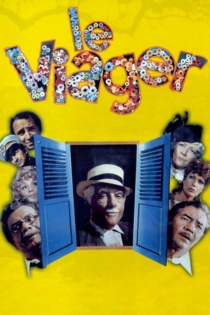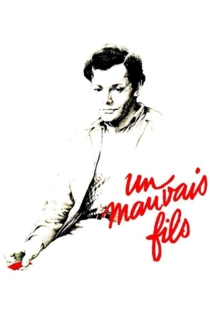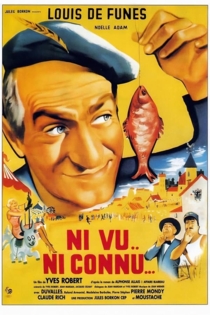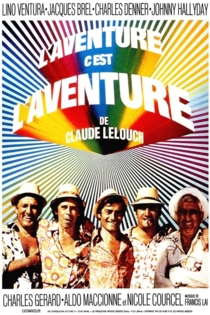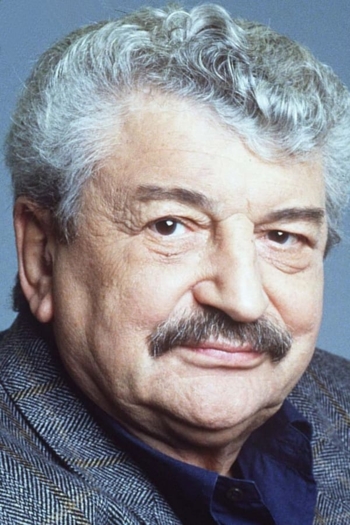
Yves Robert
1920 - 2002Robert was born in Saumur, Maine-et-Loire, France. In his teens, he went to Paris to pursue a career in acting, starting with unpaid parts on stage in the city's various theatre workshops. From ages 12–20 he set type as a typographer, then studied mime in his early 20s. In 1948 he made his motion picture debut with one of the secondary roles in the film, Les Dieux du dimanche. Within a few years, Robert was writing scripts, directing, and producing.
Yves Robert's directorial efforts included several successful comedies for which he had written the screenplay. His 1962 film, La Guerre des boutons won France's Prix Jean Vigo. His 1972 film Le grand blond avec une chaussure noire won the Silver Bear at the 23rd Berlin International Film Festival in 1973. In 1976, Un éléphant ça trompe énormément, starring his wife, earned him international acclaim. Robert's 1973 devastating comedy Salut l'artiste is considered by many performers to be the ultimate film about the humiliations of the actor's life. In 1977, he directed another comedy, Nous irons tous au paradis, which was nominated for a César Award for Best Film.
In 1990, Robert directed two dramatic films, My Mother's Castle (Le château de ma mère) and My Father's Glory (La Gloire de mon Père). Based on autobiographical novels by Marcel Pagnol, they were jointly voted "Best Film" at the 1991 Seattle International Film Festival, and received rave reviews. Over his career, he directed more than twenty feature-length motion pictures, wrote an equal number of scripts, and acted in more than seventy-five films. Although his last major role was perhaps in 1980, A Bad Son by Claude Sautet, as the working-class father of a drug-dealer, he continued acting past 1997.
Robert played opposite Danièle Delorme in the 1951 play Colombe (Dove) by Jean Anouilh. They married in 1956, and jointly formed the film production company La Guéville in 1961. La Guéville also released several films by Monty Python and Terry Gilliam, which was very influential into establishing the comedy troupe to French audiences. He died in Paris on 10 May 2002 from a cerebral hemorrhage. He was buried in Montparnasse Cemetery with the epitaph "A man of joy ...", where visitors leave buttons of many colors.[citation needed]He was survived by Danièle and two children, Anne and Jean-Denis Robert, by first wife, actress Rosy Varte. That month's Cannes Film Festival paid homage to his contribution to French film.
Source: Article "Yves Robert" from Wikipedia in English, licensed under CC-BY-SA 3.0.
Cléo from 5 to 7
Agnès Varda
Corinne Marchand, Antoine Bourseiller
Agnès Varda eloquently captures Paris in the sixties with this real-time portrait of a singer set adrift in the city as she awaits test results of a biopsy. A chronicle of the minutes of one woman’s life, Cléo from 5 to 7 is a spirited mix of vivid vérité and melodrama, featuring a score by Michel Legrand and cameos by Jean-Luc Godard and Anna Karina.
Cléo from 5 to 7
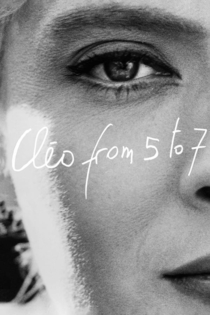
My Father's Glory
Yves Robert
Philippe Caubère, Nathalie Roussel
Raised by his science teacher father, Joseph Pagnol, and seamstress mother Augustine, young Marcel grows up during the turn of the century in awe of his rationalist dad. When the family takes a summer vacation in the countryside, Marcel becomes friends with Lili, who teaches him about rural life.
My Father's Glory
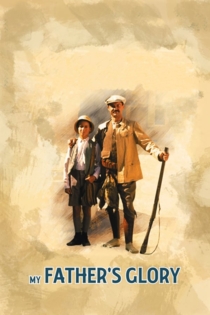
Le château de ma mère
Yves Robert
Philippe Caubère, Nathalie Roussel
To his chagrin, young Marcel Pagnol and his family move back to their home in Marseilles, France, far from their pastoral holiday cottage in the hills. Determined, Marcel makes the long voyage back to the cottage on foot and lands himself in trouble. One day Marcel's father discovers a shortcut to the cottage, but it requires trespassing. Despite their trepidations, Marcel and his family begin using the secret trail to reach their cottage.
My Mother's Castle
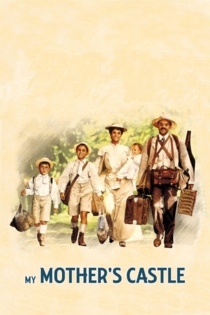
Section spéciale
Costa-Gavras
Louis Seigner, Michael Lonsdale
In occupied France during the WWII, a German officer is murdered. The collaborationist Vichy government decides to pin the murder on six petty criminals. Loyal judges are called in to convict them as quickly as possible.
Special Section
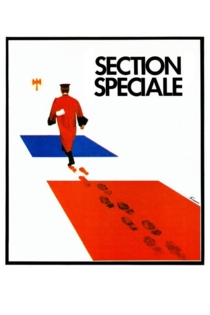
War of the Buttons
Yves Robert
Jacques Dufilho, Yvette Etiévant
For generations, two rival French villages, Longueverne and Velrans, have been at war. But this is no ordinary conflict, for the on-going hostilities are between two armies of young schoolboys. When he is beaten by his father for having lost his buttons, the leader of the Longueverne army, Lebrac, has an idea which will give his side the advantage: next time, he and his brave soldiers will go in battle without their clothes...
War of the Buttons
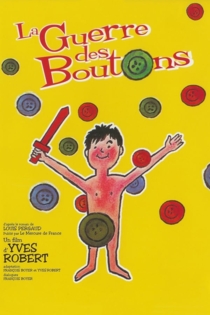
Very Happy Alexander
Yves Robert
Philippe Noiret, Françoise Brion
Alexandre, a young and honest farmer, is oppressed by an authoritarian wife, who makes him work like a dog. When she dies in a car crash, he decides to stay in bed, absolutely free and inactive. Just a dog is occupied to carry food and newspapers to him.
Very Happy Alexander
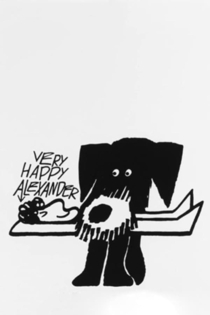
Le Roi de cœur
Philippe de Broca
Alan Bates, Geneviève Bujold
An ornithologist mistaken for an explosives expert is sent alone into a small French town during WWI to investigate a garbled report from the resistance about a bomb which the departing Germans have set to blow up a weapons cache.
King of Hearts
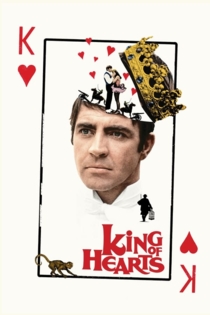
The Tall Blond Man with One Black Shoe
Yves Robert
Pierre Richard, Bernard Blier
Hapless orchestra player becomes an unwitting pawn of rival factions within the French secret service after he is chosen as a decoy by being identified as a super secret agent.
The Tall Blond Man with One Black Shoe

Pardon Mon Affaire
Yves Robert
Jean Rochefort, Claude Brasseur
On an otherwise normal day, Étienne, a happily married man and a good father, sees something that stops him dead in his tracks: a gorgeous woman in a billowing red dress. Long after she has left his vision, her memory continues to haunt his mind. He falls instantly in love with her and tries everything to get to know her better. Helping Étienne snare his elusive lady in red are his three bumbling buddies, which all have secret affairs and/or cheat on their wives.
Pardon Mon Affaire
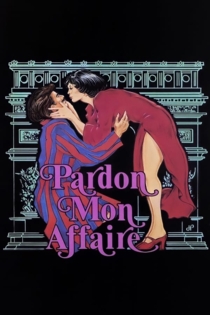
Le Viager
Pierre Tchernia
Michel Serrault, Claude Brasseur
In 1930, Louis Martinet, a peaceful sexagenarian, no longer has a long life to live according to the words of his doctor, Leon Galipeau, who sees to take advantage of the very interesting situation of the "future deceased". This one indeed has a small house in Saint-Tropez. Galipeau sniffs the windfall. Following his advice, Martinet agrees to give it in life to the brother of the doctor, Emile, and then rushes back to a health of iron. Worse, he even survives the war. Galipeau, exhausted, decide to use the great means to get rid of the importunce who persists in thwarting their project ...
Le Viager
